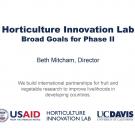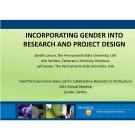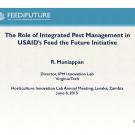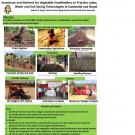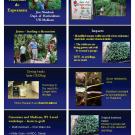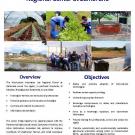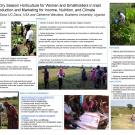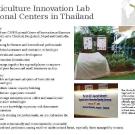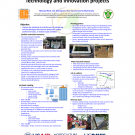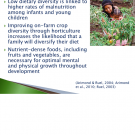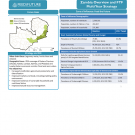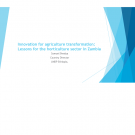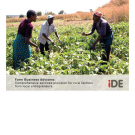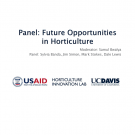When: June 8–10, 2015
Where: Radisson Blu Hotel, Lusaka, Zambia
The Horticulture Innovation Lab gathered its team of collaborators in Zambia for its 2015 annual meeting.
June 8 was a workday for current project leaders and team members, focused on learning about newly funded research projects and finding synergies between projects. On June 9, local horticultural leaders and international development professionals joined the team for a day-long conference focused on local innovations and the future of horticulture in Zambia. The same group gathered June 10 for a tour of agricultural innovation sites near Lusaka.
The program's International Advisory Board also met in advance in Livingstone to visit sites of past and future Horticulture Innovation Lab projects and to provide guidance for the program's next steps.
Photos from the meeting are available in our 2015 Annual Meeting albums on Flickr.
Here is an article about the event, highlighting speakers and activities: What we learned at the annual meeting.
We also have a blog post based on the gender workshop, called "9 tips for incorporating gender into a research project."
Below are select presentations and posters from the event, all as PDF files. The conference program (PDF) is also available. Please check back, as we continue to receive additional files and other highlights to share.
Exhibitors at the Expo
- COMACO and It's Wild!
- Zasaka
- Mawa Project
- MRI/Syngenta
- ASNAPP
- CASH Project and Mitengo Women's group
June 10: Tour of horticulture sites
The conference continued for a second day, with visits to three horticulture-related sites around Lusaka. Participants visited a variety of entrepreneurial enterprises in Zambia’s horticultural sector, including a farm, a small-scale processor, and a network of start-up businesses. Each group visited these locations, though in a different order:
- AgBIT is a public-private partnership that aims to accelerate innovation and serve as an incubator for start-up businesses in agriculture. Many of their current start-up businesses are related to the horticulture sector, from seed production to fruit and vegetable processing.
- The Lilayi Cooperative is a farming cooperative with approximately 50 members. The farm grows African indigenous vegetables, sweet potatoes, and cabbage using greenhouses and rainwater harvesting. This farm works with USAID’s Commercial Agribusiness for Sustainable Horticulture (CASH) project.
- The Mitengo Women's Group grows a variety of products for market, including moringa seedlings, mushrooms, dried vegetables, guava and tomatoes. The group has worked with ASNAPP and USAID's CASH project.

